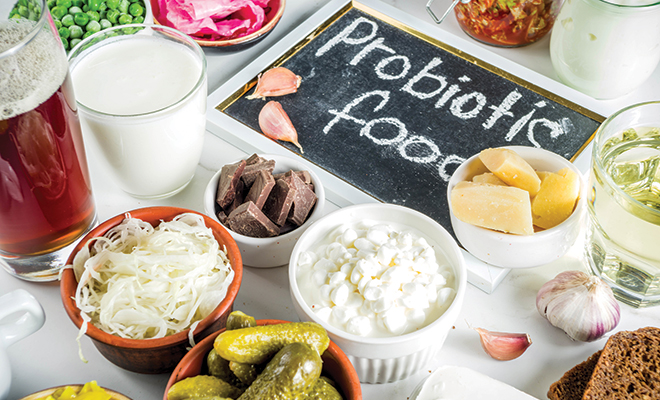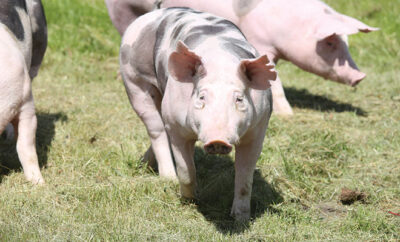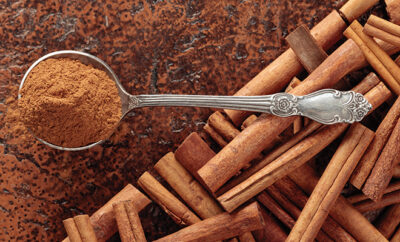
Good Health Begins with Your Gut
You’re not the only one living inside your body. The human body hosts trillions of bacteria and other microorganisms. In fact, over two pounds of our body weight is composed of gut bacteria. Some of these are present in the stomach and small intestines, but the vast majority of them live in our colon.
Collectively, these are called our gut microbiome. These tiny guests help us in many ways. They use space and resources that could otherwise be occupied by harmful pathogens. Gut bacteria also keep us well fed by breaking down substances we otherwise couldn’t digest such as dietary fiber into nutrients we can use such as short-chain fatty acids, which help our bodies regulate blood sugar, curb appetite and lose weight. Researchers are finding that the health of our gut microbiome impacts many aspects of overall health, including immunity, metabolism, mental health and even aging.
What can we do to keep these little helpers happy? There are many factors that influence gut microbiome health, beginning with things we can’t control such as the birthing process and baby feeding methods we were exposed to. Our microbiome shifts over time as we travel to different geographies, take medications, face stress or age. The quantity of food we eat and even the timing can matter for microbiome balance; gut bacteria, like humans, have circadian rhythms, which is why intermittent fasting gets results, essentially keeping your gut bacteria’s working hours and your eating on the same schedule. The biggest factor most people can control to keep their gut bacteria balanced is diet.
Each type of gut bacteria thrives in a different nutritional environment, so the ratio among the various types living in a person’s body depends on her diet. People who eat mostly carbohydrates and simple sugars have more Prevotella, which also digests fiber, while people who eat lots of protein and saturated fat have more Bacteroides, which can survive in bile and might cause inflammation in the gut. Rather than trying to cut out one type or another with a restrictive diet, it’s best to maintain a balanced diet with a diversity of foods so all the strains of gut bacteria can thrive. Research has shown that people can gradually re-balance their gut bacteria by consuming prebiotics and probiotics.
Prebiotics are foods that humans cannot digest on their own but that feed gut bacteria and promote their healthy function. The biggest category of prebiotics is dietary fiber, which indirectly benefits the body in many ways such as regulating metabolism, preventing weight gain and protecting against some cancers. Mayo Clinic says effective prebiotics include whole grains (wheat, rice and barley); fruits and vegetables (especially apples, bananas, greens, onions and garlic); beans (peas, soybeans); and nuts.
Probiotics contain live bacteria or yeasts that are known to be helpful in human digestion, so by eating them, we can directly increase the “good” population of our gut microbiome. Researchers are still learning the effects of specific probiotics on the body, but they have been shown to prevent diarrhea and constipation, treat colic in infants, reverse periodontal disease, relieve symptoms of irritable bowel syndrome and heal ulcerative colitis. You can take probiotics as a supplement or find them naturally in some foods. Many dairy products such as yogurt that’s labeled “contains live and active cultures,” kefir, buttermilk, blue cheese, Feta, Brie, Gorgonzola, Parmesan, Swiss and other cheeses are probiotic because they contain living bacteria that can also thrive inside the human gut.
Another large category of probiotics is fermented foods. During fermentation, microbes present in the food break down its natural sugars and starches, turning them into acids that preserve the food. This process cultivates the colonies of bacteria or yeast living in the food that can take up residence in the gut when they’re eaten. Fermented foods that contain gut-healthy microbes include kombucha, miso, kimchi, dry fermented sausage such as pepperoni and salami, sauerkraut, fish sauce, tempeh and sour beer such as Lambic. Be careful; not all fermented foods are probiotic, because some of them undergo processes that kill the bacteria before they reach the consumer. That includes most alcoholic drinks and canned versions of the products listed above.
Making changes to your diet can positively affect your microbiome health, but it doesn’t happen overnight. For example, a study showed that people who switched to sourdough bread instead of packaged white bread saw changes in their microbiome balance, but it took longer than two weeks to make a difference. Gut health is complex and still largely unstudied. The good news is that you’re dealing with trillions of living organisms, so the microbiome is resilient and it’s easy to experiment. Try adding some gut-friendly foods to your diet and see if your body thanks you! ■
Sources: ncbi.nlm.nih.gov, sciencedirect.com, wikipedia.org, nature.com, mayoclinic.org, www.nccih.nih.gov and health.harvard.edu.







